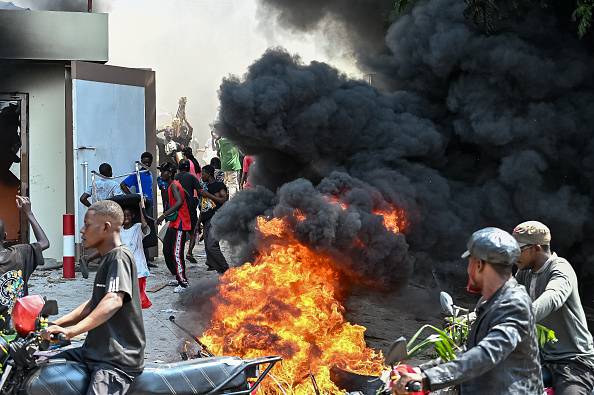President Cyril Ramaphosa is currently in direct communication with the presidents of the Democratic Republic of the Congo and Rwanda amidst escalating tensions in the region. The unrest stems from large-scale protests conducted by M23 rebels in Kinshasa, the capital of the Democratic Republic of Congo. The rebels have been accused of setting fire to several embassy buildings, including those of Rwanda, France, Belgium, and Kenya, as well as looting various shopping centers.
The M23 rebels are believed to be supported by the rebel group known as the March 23 Movement (M23), further complicating the situation in the region. The demonstrations have sparked concerns about the stability of the area and the potential for further violence. President Ramaphosa’s involvement in the situation highlights the importance of diplomatic relations in resolving conflicts and maintaining peace in Africa.
The ongoing unrest has also prompted discussions among African leaders, including those from the African Union and the Southern African Development Community (SADC). The involvement of regional organizations underscores the collective effort to address the root causes of the conflict and find a peaceful resolution. Additionally, the United Nations has been monitoring the situation closely and providing support to mitigate the impact of the unrest on the local population.
Key figures such as Paul Kagame of Rwanda and other regional leaders have been actively engaged in finding a diplomatic solution to the crisis. The collaboration between different stakeholders is crucial in navigating the complex political landscape of the region and preventing further escalation of violence. The presence of the South African National Defence Force (SANDF) and other security forces aims to maintain stability and protect civilians from harm.
As the situation continues to unfold, it is essential for all parties involved to prioritize dialogue and peaceful negotiations. The support of the international community, including the United Nations, is crucial in facilitating a peaceful resolution to the conflict. By working together and upholding the principles of diplomacy and conflict resolution, African leaders can pave the way for a more stable and prosperous future for the region.








